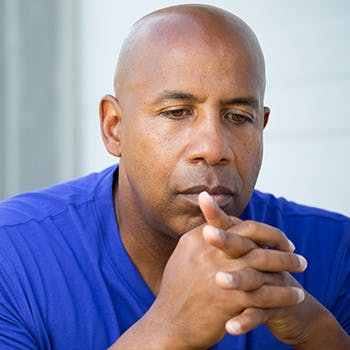Why Pregnant Women Get Hemorrhoids

Being pregnant is an exciting time, filled with anticipation and change. However, one of the changes you may not have expected is the onset of hemorrhoids after childbirth. But you’re not alone: hemorrhoids during pregnancy are common, especially in the third trimester and up to one month in the postpartum phase.1 Hemorrhoids occur in about 30 to 40% of pregnant people.1
Why Do Pregnant Women Get Hemorrhoids?
Hemorrhoids appear due to pressure in your pelvic area and the lower part of your bowel, or digestive tract.1 During a pregnancy, this pressure can be so much that the veins around the anus absorb the impact and swell, causing a hemorrhoid.1 This pressure exists for a few different reasons during the course of a pregnancy:1,2
- The baby. A fetus will put pressure on your pelvic area and bowels. This added weight from the growing fetus will press on the veins in your anus, so they aren’t able to move blood throughout your body with ease. Instead, the slowed blood pools up, causing swelling inside your veins. If you spend long periods of time standing up, it can exacerbate any issues of this nature.
- Blood volume. The amount of blood in your body increases during pregnancy, due to a shared circulatory system for the parent and the fetus. Your veins must do the hard work of moving more blood than usual throughout your body. Given the increase in volume, your veins will likely swell up.
- Constipation. Hormone changes in your body slow the digestion process that helps you have regular bowel movements. The extra weight from the waste stuck in your bowel can squeeze the veins in your anus so that it’s harder for them to move blood. Straining to poop adds even more pressure.
Symptoms of Hemorrhoids During Pregnancy
Hemorrhoids frequently appear during the third trimester of a pregnancy, when the baby is experiencing rapid growth.2 Some of the most common symptoms of hemorrhoids during pregnancy include:1,2
- Pain during bowel movements
- Itching in and around the anus
- Blood in the stool and on toilet paper after wiping (typically from an internal hemorrhoid)
- A small swollen (often blue of bright red colored) mound of skin protruding from the anus (for external hemorrhoids).
- Intense pain from an internal hemorrhoid falling outside your anus (prolapsed hemorrhoid).
Postpartum Hemorrhoids
If you experienced hemorrhoids during your pregnancy, they may worsen after your baby is born. Fortunately, they will slowly get better during your postpartum period.3 The pushing and pressure associated with a vaginal delivery may cause some women to develop hemorrhoids, even if they didn’t have them during their pregnancy.4 Symptoms of postpartum hemorrhoids may include:4
- Pain
- Itching in and around the rectum
- Swelling around the anus
- Blood after a bowel movement
Preventing Hemorrhoids During Pregnancy
A pregnancy can be stressful enough without the addition of uncomfortable hemorrhoid symptoms. Preventing hemorrhoids during your pregnancy can be as straightforward as preventing constipation. Regular bowel movements can ease the pressure on your veins and encourage circulation.1 Try the following tips to prevent constipation during your pregnancy:2,3
- Eat a high-fiber diet
- Drink plenty of fluids, including prune juice
- Work Kegel exercises into your routine to encourage circulation
- Don’t wait if you need to use the restroom
- Eat plenty of fruits and vegetables
- Stay mobile to take the weight off your pelvic area
How to Manage Hemorrhoids During Pregnancy
As your pregnancy progresses, your baby will grow and put greater strain on your body and pressure on your blood vessels.1 There isn’t anything you can do about this, but you can take some steps to reduce the physical strain of pregnancy. Changing some of your daily habits can help manage any hemorrhoids that may occur while you’re pregnant:1,2
- Don’t remain standing or sitting for too long. Instead, lay on your side to take pressure off your pelvic area and bowel and when you do sit, use a donut pillow to relieve pressure.
- Focus on not straining while you’re on the toilet. Instead, focus on relieving your constipation.
- Place baking soda (wet or dry) on the area to reduce itching.
- Take a warm bath with baking soda in the water.
Preparation H Medicated Wipes for Women
Preparation H Medicated Wipes for Women provide effective relief for the burning and itching of hemorrhoids during pregnancy and following childbirth. They’re the first and only women’s hemorrhoid wipes infused with chamomile, aloe and refreshing cucumber, plus a soothing medication that cools on contact. They’re gentle enough for everyday use and they’re flushable.
Learn more about Medicated Wipes for Women.
Source Citations:
- Hemorrhoids During Pregnancy. Cleveland Clinic. https://my.clevelandclinic.org/health/diseases/23498-pregnancy-hemorrhoids. Accessed 8/28/23.
- Hemorrhoids During Pregnancy. American Pregnancy Association. https://americanpregnancy.org/healthy-pregnancy/pregnancy-health-wellness/hemorrhoids-during-pregnancy/. Accessed 8/28/23.
- What can I do for hemorrhoids during pregnancy? The American College of Obstetricians and Gynecologists. https://www.acog.org/womens-health/experts-and-stories/ask-acog/what-can-i-do-for-hemorrhoids-during-pregnancy. Accessed 8/28/23.
- Common Conditions After Delivery. University of Rochester Medical Center. https://www.urmc.rochester.edu/ob-gyn/obstetrics/after-delivery/common-conditions.aspx. Accessed 8/28/23.



